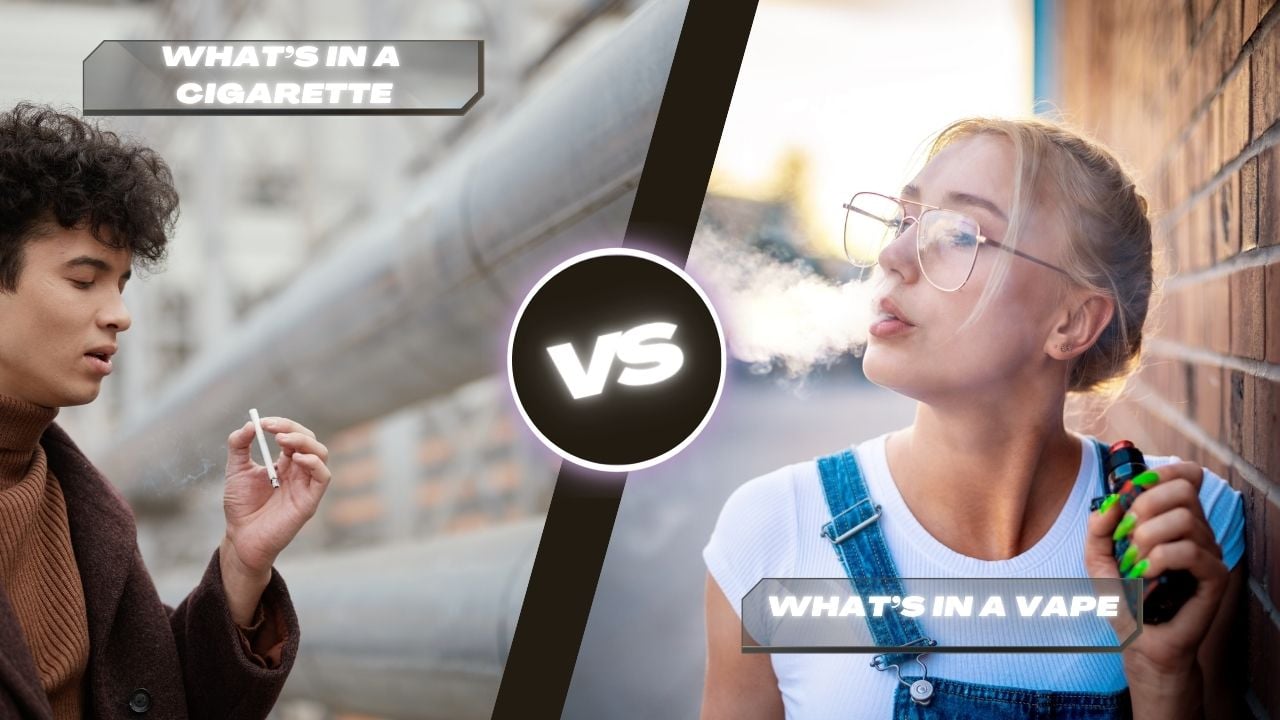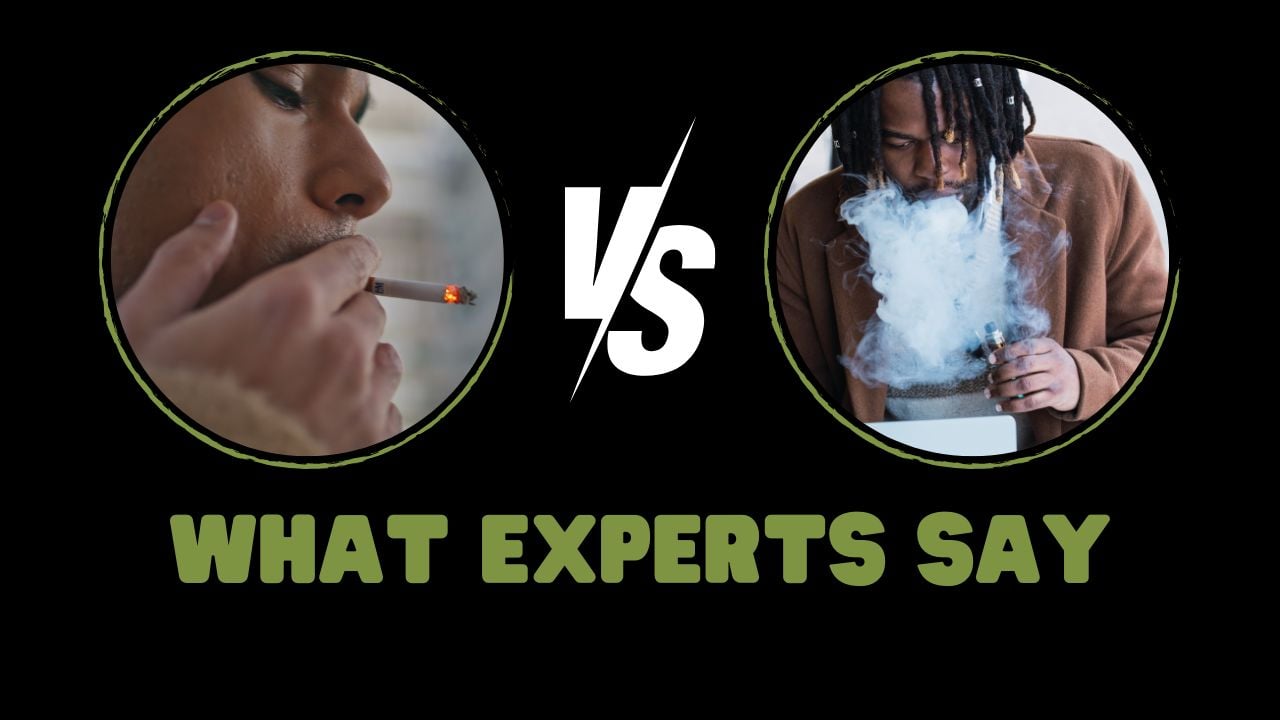Vaping and cigarettes spark a lot of talk, and for good reason. Both involve nicotine, but the way they deliver it—and the risks they carry—differ. If you’re a vaper, or thinking about switching from smoking, you’ve likely wondered: are vapes worse than cigarettes? Research leans toward vaping being less harmful for smokers, offering a way to cut exposure to some toxins. Still, it’s not a risk-free habit. It’s an important debate. To learn more, we’ll break down what’s in each, the health risks, and what experts say, so you can make sense of it all.
The Ongoing Debate: Why People Ask This Question
The question of vaping versus smoking keeps coming up. Smokers want options to quit, and vaping often feels like a modern choice. For years, cigarettes have been a known health hazard, killing over 480,000 people annually in the U.S. alone. Vaping, newer on the scene, promises fewer toxins, but headlines about lung injuries and teen use stir worry. You might be asking this because you’re torn; hoping for a safer path, yet unsure about vaping’s risks. With mixed messages from media and science, it’s natural to seek clarity.
What’s in a Cigarette vs. What’s in a Vape?
Combustion vs. Vaporization
Cigarettes work by burning tobacco. That combustion creates smoke, a mix of over 7,000 chemicals, many toxic. The heat releases tar and carbon monoxide, hitting your lungs hard. Vaping, however, heats a liquid—often nicotine, flavorings, and chemicals—into an aerosol. No burning means no smoke, skipping some of the worst byproducts. For vapers, this shift feels less harsh, and studies suggest it cuts exposure to certain dangers. Still, that aerosol isn’t pure vapor, some chemicals linger.
Chemicals Comparison
Inside a cigarette, you get a flood of over 7,000 chemicals, including 70 linked to cancer, per the American Heart Association. Tar and carbon monoxide are big players in harm. Vapes have fewer toxins; no tar, no carbon monoxide. But they’re not clean. Nicotine, often present, keeps you hooked. Some e-liquids carry diacetyl, tied to lung issues, and traces of metals like nickel. Research, such as from Johns Hopkins Medicine, shows vaping’s chemical load is lighter, but not zero. It’s a trade-off, not a free pass.
Health Risks: Smoking vs. Vaping
Cancer Risk
Cigarettes are a cancer heavyweight. Those 70 carcinogens, plus tar, drive lung, throat, and other cancers, killing thousands yearly. Vaping’s risk is lower. Without combustion, you dodge many cancer-causing agents. Studies aren’t final, but the NHS in the UK and others say vaping poses a “small fraction” of smoking’s threat. For vapers, that’s a plus, though long-term data is still coming.
Respiratory Damage
Smoking wrecks lungs, contributing to diseases like emphysema, chronic bronchitis, and worse. Secondhand smoke even harms others. Vaping lacks tar, a major lung destroyer. For now, vaping looks less damaging, but it’s important to pay attention to developing research on this topic, too.
Nicotine’s Role
Nicotine fuels both habits. In cigarettes, it’s paired with toxic smoke, boosting addiction and heart strain. In vapes, it’s still addictive, possibly harming teen brains or pregnant women, per the American Heart Association. You can control nicotine levels in e-liquids, which helps some people cut back. It’s a key player, hooking users, but vaping lets you adjust the dose. You can even buy vapes with no nicotine, so you can switch things up from time to time.
What Experts Say
Public Health England Stance
Public Health England, part of the UK’s health system, has studied vaping closely. They say it’s about 95% less harmful than smoking. There is debate on this stance, since it is over ten years old. But University College London News reports that many smokers in England, when surveyed, thought vaping was as harmful as smoking, when that is not the case, in fact. What these findings imply is that some smokers could hesitate or decide not to switch to vaping, to potentially cut down or quit tobacco.
CDC & FDA Positions
The CDC and FDA take a cautious line. They note vaping’s lower toxin load but warn of risks, such as lung injuries, addiction, and teen use. Over 2 million U.S. students vaped in 2021, per Johns Hopkins, prompting alarm. The FDA hasn’t approved vapes for quitting, pushing proven aids like patches instead. They urge care, especially with unregulated products.
Misconceptions and Media Fear
Media often amplifies vaping fears, and lung injury headlines grab attention. Some think vaping’s worse than smoking. Experts, like Dr. Benjamin Toll from Hollings Cancer Center, push back, saying smoking’s proven harm outstrips vaping’s risks. He said that he fears some doctors could cause people to stay with or move to cigarettes for fear of vaping being more harmful. For vapers, sifting through hype to find facts is key.
Not Risk-Free, But Less Harmful
Relative Harm Model
Here’s the breakdown: smoking’s harm is massive, vaping’s is smaller. A quick look shows the gap:
Cigarettes: Over 7,000 chemicals, 70 carcinogens, tar, and carbon monoxide; linked to cancer and heart disease.
Vaping: Fewer toxins, no tar, but nicotine and some chemicals carry risks like addiction and lung irritation.
As we’ve seen, some studies, like the one we discussed from the NHS, call vaping a “small fraction” of smoking’s danger. For smokers, switching might cut harm. Long-term effects need more research, but the model leans in vaping’s favor.
Why Non-Smokers Shouldn’t Start
Vaping isn’t for everyone. Non-smokers, teens, and pregnant women face risks; nicotine can harm developing brains or pregnancies. The FDA would like to limit how much can be present in cigarettes and combusted tobacco products.
Just because cigarettes and combustible tobacco aren’t a part of your life, doesn’t mean taking up vaping is totally safe. No one needs a new habit with unknowns. If you don’t smoke, skip vaping. It’s often aimed at smokers seeking a less harmful path, not a hobby.
Key Takeaways–Smoking vs. Vapes
Vaping can be a bridge for smokers. You can lower nicotine over time. It’s a way to make the jump off cigarettes. It’s not the end goal, but for vapers, it’s a practical step.
For smokers, vaping might be a safer bet, dodging tar and many toxins. Research leans toward less harm, a plus if you’re switching. But it’s not completely safe; nicotine can hook you, and long-term risks are unclear. Buy from trusted sources, stay informed, and aim to quit fully.
If you’re looking for a trusted source where you can buy quality brands like Logic, Jinx, Juul, Blu and Vuse, shop I Love Ecigs’ website. View our product line for a great vapes selection!













